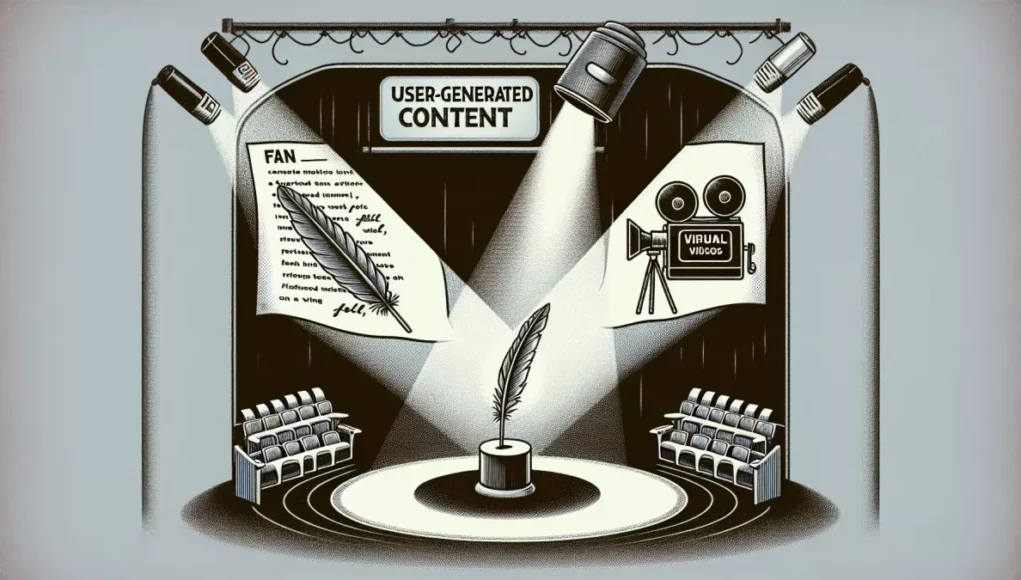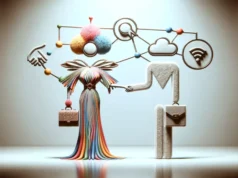We live in an era where platforms for creativity and expression have expanded beyond traditional boundaries. Gone are the days when artists and creators relied solely on traditional mediums such as books and films to communicate their works, messages, or ideas. Today, the term “content creation” is not limited to professional journalists, writers or filmmakers. In fact, the most trending substance on the internet often emerges from unexpected corners of the world, produced by humble netizens, just like you and me. Yes, welcome to the era of User-Generated Content (UGC), where everybody – from a teenager posting a fanfiction on Tumblr to a middle-aged man sharing a cooking video on YouTube – becomes a producer of content. From fan fiction to viral videos, user-generated content takes the center stage.
When J.K. Rowling penned down the Harry Potter series, little did she know that her creation would inspire thousands of fans worldwide to take up the quill and write their own stories, set in the magic-infused universe of Hogwarts. Fanfiction.net and Archive of Our Own (AO3) boast millions of stories written by everyday people infatuated with popular culture from books, movies, TV shows, and anime. These platforms – which allow aspiring writers to present their take on their favorite characters, expand upon a universe’s lore, fill plot holes, or simply bring their “ships” to canon – thrive on the creativity of their members. What once started as a humble form of adulation for beloved franchises has now turned into an industry on its own, proving that user-generated content has a long-lasting appeal that draws in millions globally.
On the other end of the spectrum lie the stars of TikTok, YouTube, and Instagram, who deliver content packaged in the form of informal reviews, how-to guides, personalized storytelling, comedic sketches, or soulful musical performances. These platforms, unlike traditional media, offer unfiltered and tangible creativity.
One example of this is “Dalgona Coffee,” a whipped coffee drink trend that originated from a South Korean TV show and soon found itself becoming a global sensation during the COVID-19 lockdowns thanks to TikTok users. These ‘creators’ used their take on the original recipe, adding their innovative additions and adjustments. Consequently, they not only learned and enjoyed a new recipe but also contributed to a viral social media trend that transcended borders and cultural differences.
The impact and influence of user-generated content have also caught the attention of businesses and marketers. Brands are increasingly leveraging UGC for their marketing strategies, with Coca-Cola’s ‘Share a Coke’ and Starbucks’s ‘White Cup Contest’ being prime examples.
UGC has proven to have impacts on influencing consumer decisions as well. In a consumer survey conducted by TurnTo Networks in 2018, 90% of consumers indicated that user-generated content influenced their decision to purchase more than any other form of advertising. This new trend proves the power UGC holds in our society today.
Perhaps what makes UGC so relevant and appealing is its undeniable authenticity and relatability. In an era where viewers have become wary of overly polished and edited content, user-generated content provides a refreshing break. It empowers everyday individuals to become creators and influencers, impacting the world with their originality.
User-Generated Content is not a passing fad. It’s a revolutionary movement that has disrupted traditional forms of media, reshaped the way we consume and perceive content, and fundamentally altered the ways brands and businesses engage with their consumers.
Sources:
1. Fanfiction.net. https://www.fanfiction.net
2. Archive of Our Own. https://archiveofourown.org
3. TurnTo Networks. https://www.turntonetworks.com
4. “The Impact of User-Generated Content on Consumer Buying Decisions,” TurnTo Networks, 2018. https://www.turntonetworks.com/press-releases/turnto-releases-consumer-study-impact-user-generated-content-consumer-purchasing-behavior/
5. Slyce Insights. https://slyce.it/resources/blog/5-brands-making-most-user-generated-content






